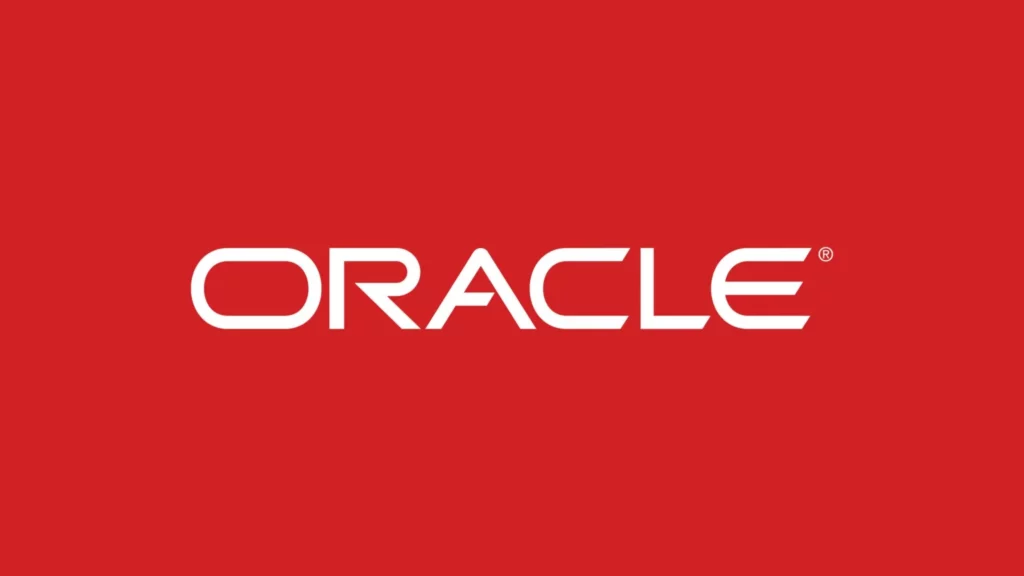If you're a developer, you may already have heard of Oracle. A specialist in database management, and a major provider of cloud infrastructure, Oracle has been named a leader by the Gartner Magic Quadrant in 2021 for the sixth year running, for the comprehensiveness of its vision, and its new cloud services.
Founded in 1978, this American company was the first to implement a relational database management system (or RDBMS), based on an article by IBM researcher Edgar F Codd. This technology enables large quantities of data to be sorted for efficient storage and rapid retrieval. In particular, relational database management was the first to take into account Structured Query Language (SQL), which has since become a worldwide reference in database management.
After expanding its business by acquiring the Java programming language in the early 2000s, Oracle has largely migrated to cloud computing services and applications, which today account for over 80% of its business.
Relational database management with Oracle Database
The basic principle of the relational model lies in the separation of data structures (data tables, views and indexes) from physical storage structures. This separation enables database administrators to manage physical data storage without affecting the logical structure of the data. By renaming a database file, you can avoid renaming the tables it contains, for example.
This principle has made it possible to unify data structure models. Developers and applications can therefore find the data they need with a minimum of queries. Using a database management system like Oracle Database, therefore, improves data integration and sharing within the enterprise, enhances data security and minimizes data inconsistency. As a result, having a centralized database means that all company users spend less time searching for data, and therefore gain in productivity.
Oracle Web Logic Server: a scalable java platform
WebLogic is a platform for deploying Java applications with full server management. Java is a widely used programming language, particularly in the development of Android applications and websites. With WebLogic, when clients send a request to a Web application, the Web server takes charge of it and directs its processing to the required service.
Web Logic simplifies requests by handling all operations, such as database queries, without the user knowing what’s going on in the background. They simply get the answer to their query. The server is generally used in production environments, where many users carry out thousands of simultaneous queries.
Oracle E-Business Suite, Oracle's ERP suite
Also known as Oracle EBS, E-Business suite is an ERP (Enterprise Resource Planning) suite that manages and integrates a company’s finance, supply chain, operations, trading, reporting, manufacturing and human resources activities.
Oracle EBS offers several technical advantages. First and foremost, it is based on Oracle’s database management system, which is renowned for its robustness, and uses protocols that are compatible with all corporate IT environments (notably TPC/IP). Oracle EBS also offers an extremely comprehensive and adaptable suite of integrated applications. This suite of applications is known to be particularly customer-oriented among ERP solutions. These specific integrated solutions help to improve overall business efficiency.
Oracle Cloud Infrastructure services
In recent years, Oracle has invested heavily in its cloud computing services. Oracle offers a wide range of cloud services to businesses, from cloud infrastructure (IaaS) to cloud platforms (PaaS) and, of course, cloud applications (SaaS).
Oracle offers unique solutions that are known to work effectively with other multi-cloud solutions. But what really sets Oracle Cloud services apart is their SLA (Service Level Agreement): an agreement between a cloud service provider and a customer that ensures a minimum level of service is maintained.
How does Oracle Cloud compare with AWS, Microsoft Azure, or Google Cloud?
In recent years, Oracle Cloud has lagged behind the web giants. But technical developments have put the company back on track. Key advances include the roll-out of 14 cloud regions by 2021, providing greater cloud infrastructure resilience and broader geographic coverage. This expansion will enable more customers to access Oracle’s cloud infrastructure services worldwide. By the end of 2022, Oracle aims to have 44 cloud regions worldwide.
Like its direct competitors, Oracle has also launched services enabling developers and data scientists to apply AI processing to various business scenarios in Oracle Cloud Infrastructure (OCI). This update enriches the OCI service with a suite of AI services that enable the development and execution of big data applications.
The cloud has become essential for companies that handle data on a daily basis. Combined with Artificial Intelligence, it enables companies to manage and analyze all the data at their disposal quickly and accurately, giving them a major competitive edge.










